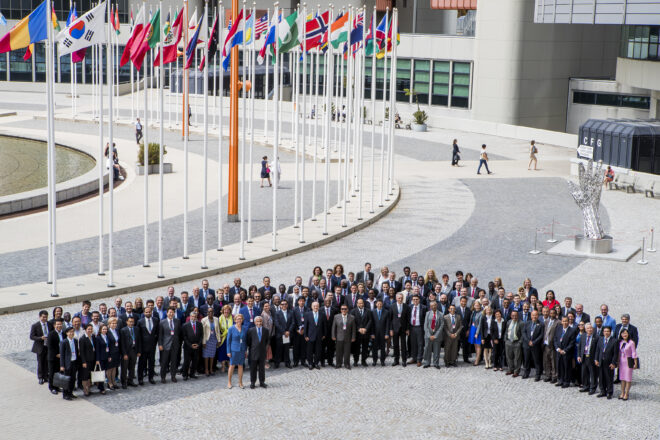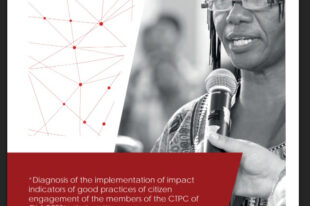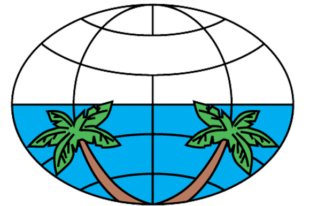Symposium Highlights Big Data and Sustainability

[cmsmasters_row data_shortcode_id=”m2zx5sbg5q” data_width=”boxed” data_padding_left=”3″ data_padding_right=”3″ data_top_style=”default” data_bot_style=”default” data_color=”default” data_bg_position=”top center” data_bg_repeat=”no-repeat” data_bg_attachment=”scroll” data_bg_size=”cover” data_bg_parallax_ratio=”0.5″ data_padding_top=”0″ data_padding_bottom=”50″ data_padding_top_laptop=”0″ data_padding_bottom_laptop=”0″ data_padding_top_tablet=”0″ data_padding_bottom_tablet=”0″ data_padding_top_mobile_h=”0″ data_padding_bottom_mobile_h=”0″ data_padding_top_mobile_v=”0″ data_padding_bottom_mobile_v=”0″][cmsmasters_column data_width=”1/4″ data_shortcode_id=”0118wtkzqo” data_bg_position=”top center” data_bg_repeat=”no-repeat” data_bg_attachment=”scroll” data_bg_size=”cover” data_border_style=”default” data_animation_delay=”0″][/cmsmasters_column][cmsmasters_column data_width=”1/2″ data_shortcode_id=”yas3dvwgc”][cmsmasters_quotes shortcode_id=”81v2oxwpa” mode=”slider” speed=”5″ animation=”fadeIn” animation_delay=”0″][cmsmasters_quote shortcode_id=”8srwfozpkg” name=”Mr. Wesley Vaz Silva, SAI Brazil”]
Audit is our business. Information is our oxygen.
[/cmsmasters_quote][/cmsmasters_quotes][/cmsmasters_column][cmsmasters_column data_width=”1/4″ data_shortcode_id=”v2889m6fw”][/cmsmasters_column][/cmsmasters_row][cmsmasters_row data_padding_bottom_mobile_v=”0″ data_padding_top_mobile_v=”0″ data_padding_bottom_mobile_h=”0″ data_padding_top_mobile_h=”0″ data_padding_bottom_tablet=”0″ data_padding_top_tablet=”0″ data_padding_bottom_laptop=”0″ data_padding_top_laptop=”0″ data_padding_bottom=”50″ data_padding_top=”0″ data_bg_parallax_ratio=”0.5″ data_bg_size=”cover” data_bg_attachment=”scroll” data_bg_repeat=”no-repeat” data_bg_position=”top center” data_color=”default” data_bot_style=”default” data_top_style=”default” data_padding_right=”3″ data_padding_left=”3″ data_width=”boxed” data_shortcode_id=”ffdlqae58i”][cmsmasters_column data_width=”1/4″ data_animation_delay=”0″ data_border_style=”default” data_bg_size=”cover” data_bg_attachment=”scroll” data_bg_repeat=”no-repeat” data_bg_position=”top center” data_shortcode_id=”y17nl10oni”][/cmsmasters_column][cmsmasters_column data_width=”1/2″ data_shortcode_id=”bfjrv3bjxm”][cmsmasters_gallery shortcode_id=”0ff0gdsnuu” layout=”slider” image_size_slider=”cmsmasters-blog-masonry-thumb” slider_effect=”slide” slider_autoplay=”true” slider_slideshow_speed=”5″ slider_animation_speed=”600″ slider_rewind_speed=”1000″ slider_nav_control=”true” animation_delay=”0″]1877|http://146.66.97.177/~intosaij/site/wp-content/uploads/2017/07/groupphoto_medium-150×150.jpg,1874|http://146.66.97.177/~intosaij/site/wp-content/uploads/2017/07/dr-kraker-and-dr-al-amimi-150×150.jpg,1875|http://146.66.97.177/~intosaij/site/wp-content/uploads/2017/07/mendoza_hamid-150×150.jpg[/cmsmasters_gallery][/cmsmasters_column][cmsmasters_column data_width=”1/4″ data_shortcode_id=”e7dy4pnseq”][/cmsmasters_column][/cmsmasters_row][cmsmasters_row][cmsmasters_column data_width=”1/1″][cmsmasters_text]
“Audit is our business. Information is our oxygen.” These words, offered by Mr. Wesley Vaz Silva from the Supreme Audit Institution (SAI) of Brazil, capture the essence of the 24th United Nations (UN)/International Organization of Supreme Audit Institutions (INTOSAI) Symposium held in Vienna, Austria, May 31-June 2, 2017.
Roughly 150 delegates from more than 70 SAIs and international institutions, including the UN Department of Economic and Social Affairs (UNDESA), UN Office of Internal Oversight (OIOS), International Budget Partnership (IBP), and the Deutsche Gesellschaft für Internationale Zusammenarbeit (GIZ) united to share knowledge and experiences with digitalization, open data and data mining to lay the foundation to monitor progress toward Sustainable Development Goal (SDG) implementation.
The three-day event included numerous presentations and thought-provoking round table discussions that, according to the symposium’s technical chair, Mr. Chris Mihm from the United States Government Accountability Office, resulted in two major themes: (1) the auditing community is in the midst of change and (2) digitalization profoundly impacts government services and auditing.
Mr. Alhassane Thierno Baro, SAI Senegal, said that, in our era, requirements of democracy coupled with the interdependency of our economies increase the importance of opening up and sharing public data. Mr. Baro also pointed out that the up and coming generations will drive change.
This changing environment requires the audit community to adapt on many levels. Mr. Jesús Nieto Muñoz, European Court of Auditors, noted auditors must “take a quantum leap forward, not by just embracing new technologies, but by also adopting a digital mindset.”
SAI Pakistan’s presentation echoed that sentiment, pointing out that now, more than ever, auditors must keep skills updated.
Additionally, the constantly evolving surroundings means auditors must also uncover new approaches asserted Mr. Prasenjit Mukherjee from India’s Office of the Comptroller and Auditor General, and the United Kingdom National Audit Office’s (NAO) Philip Bradburn agrees.
Bradburn noted audits should be faster, better, cheaper—they should add value while reducing costs. And, it’s not just talk. “We’ve done stuff!” exclaimed Bradburn, who cited the use of webscraping, journal sampling and fuzzy logic as examples of recent data-driven NAO initiatives.
Many SAIs have begun capitalizing on data sourcing when performing audits. SAI South Africa has used data mining in fraud investigation; Oman’s State Audit Institution has incorporated digital forensics in audits aimed at fighting corruption; Canada’s Office of the Auditor General has accomplished a tremendous amount of work using population-based approaches and text analytics; and SAI Brazil has connected technical experts with line auditors in its audit efforts.
The notion of big data brings with it big opportunities, including modernization, real-time results, forecasting capabilities and interactivity. Ms. Tatiana Golikova, Chair of the Accounts Chamber of the Russian Federation, noted the ability to continuously monitor audit activities via automation, and SAI Germany cited direct information to citizens as additional benefits when using data mechanisms and methodologies in this era of digital administration.
Yet, operating in a digital environment can also lead to considerable challenges, such as data access, data quality, increased expectations, technical capacity and human resource aspects.
In addition to the common challenges cited, the Austrian Court of Audit (ACA) identified specific hurdles associated with processing and presenting big data volumes. Despite the potential pitfalls with such a vast quantity of information and analytics, the ACA believes data mining and analysis in performance audits can lead to new insights, and SAIs can help “discover hidden knowledge treasures.”
The discussions and engagement on data sourcing provided attendees with numerous ideas on potential ways to employ data tools and techniques to support a wide variety of audit functions, including auditing SDGs—an INTOSAI priority, as the demand for SAIs to play a more prevalent role in SDG implementation is evident given recent INTOSAI standards and the UN resolution calling for nations to foster SAI independence and capacity building. The importance of SAIs is also noted in the 2030 Agenda for Sustainable Development, where SAIs are key in implementing the 17 Sustainable Development Goals (SDGs) designed to transform the world.
Ms. Marion Barthélemy, Director, United Nations Department of Economic and Social Affairs (UNDESA), believes SAIs can provide unique assessments and considers INTOSAI’s approach framework an opportunity to work together to advance methodologies and embed SDG implementation into processes.
INTOSAI’s approach framework, comprised of four tactics, acts as a map designed to help navigate toward successful SDG implementation.
The four approaches outlined in the framework are:
- Approach 1—Auditing National Follow-Up Systems
- Approach 2—Performance Audit of Programs that Contribute to SDGs
- Approach 3—Assessing and Supporting SDG 16 Relating to Effective, Accountable and Transparent Institutions
- Approach 4—Being a Model of Transparency and Accountability
A panel of representatives—SAI Canada, SAI Brazil, GIZ and the INTOSAI Development Initiative (IDI)—helped guide a discussion to help symposium participants better understand the approach framework.
Ms. Julie Gelfand, SAI Canada, provided short-, medium-, and long-term steps to assess preparedness during her remarks on Approach 1 and stressed that SAIs have a very big role to play in accountancy and transparency.
Approach 2 was presented by Mr. Aroldo Cedraz, SAI Brazil, who noted, “SDG implementation will only be possible through SAI commitment.”
Dr. Barbara Dutzler, GIZ, who focused on Approach 3 believes SAIs must understand and strengthen Public Financial Management (PFM) as a key factor, catalyst, and driver of successful government performance. Dutzler also asserted that results are not well communicated.
Communication is crucial to success, and Einar Gørrissen, IDI’s Director General, furthered (in his presentation on Approach 4) that SAIs must do more than just talk about SDG implementation. SAIs must “lead by example,” Gørrissen emphasized and quoting Mr. Khalid Hamid from the United Arab Emirates State Audit Office, Gørrissen added, “We need to walk the talk!”
Earlier in the day, Mr. Hamid provided the audience with a follow-up on Theme 1 of INCOSAI XXII, which concentrated on SDGs. In his address, Mr. Hamid stressed the importance of sharing knowledge and getting involved in the dialogue at all levels. “We must find a global public voice,” he pronounced.
Global indeed. Much like that of the 2030 Agenda. Much like that of the SDGs. Much like that when it comes to continued cooperation between SAIs and the UN.
Capping off the symposium’s second day, representatives from UNDESA, IDI, the (IBP) and the SAIs of Columbia and Finland spearheaded a plenary discussion on the way forward.
Ms. Archana Shirsat, Deputy Director General for IDI, highlighted that focusing on programs that support outcomes (rather than solely taking an outcomes-based approach) is essential. “It’s not just doing different things, it’s doing things differently,” she stressed.
It is evident. The digital age is changing the auditing world. Digitalization is shaping the auditing community of the future. Embracing this change is key.
“The digital age gives SAIs ample opportunities to modernize and ample opportunities to fail, but we should not be afraid.” —Dr. Ellen van Schoten, Netherlands Court of Audit.
[/cmsmasters_text]
[/cmsmasters_column][/cmsmasters_row]





